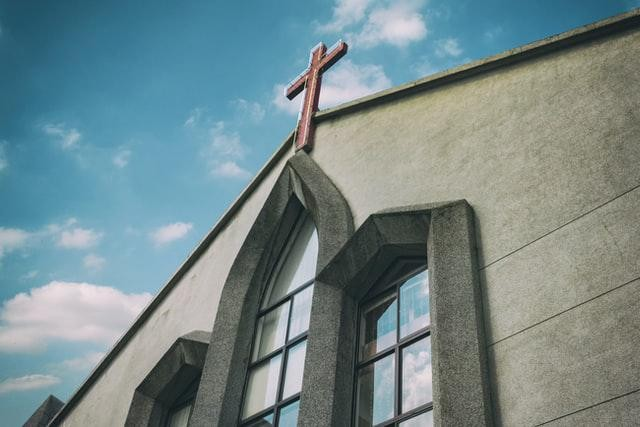The pandemic, which has lasted for over three years, significantly impacts many churches in China, both in terms of the number of members and in the development of their ministries.
A few days ago, the Christian Times, an online Chinese Christian newspaper, interviewed six pastors in East China and reported on the changes in churches in the post-pandemic era. Many pastors believe that God’s good will is still present under all kinds of shocks, and they reflect on the pandemic from different perspectives. In their opinion, perhaps the phrase “being washed out” is more appropriate than “impact” when describing how the pandemic has influenced churches.
Pastor A says: “During the pandemic, the experiences of the individual church were definitely bad. During the pandemic, the cost of implementing various ministries was obviously much higher. Home visitation is one example - it now takes much more time and energy. However, it’s a good thing for the future of the church, because, after trials, we become increasingly aware that everything is under God’s guidance.”
In his view, the history of the church is a history of development under hardship. The book of Acts is an example. The apostles were forced to leave, and after they went out, they began to plant churches extensively. Therefore, he believes that the church needs to reflect on its mission. “In the past, we paid attention to church buildings. The current period reminds us that we should give more resources to build up lives and spread the gospel. At the same time, we should also guide believers to think: am I indeed a true believer?”
Pastor B usually pays great attention to the social participation of Christians and reflects on this perspective. The pastor argues: “The pandemic made pastors start thinking about how Christians can get out of church buildings and start to serve society in its current environment. It is necessary to prepare for other environmental and natural disasters in the future. We need to understand how to overcome ourselves to be a light and salt in society. During the pandemic, church believers volunteered to help the lonely elderly in the community by buying and delivering food as well as acid testers to them. It is a positive phenomenon when Christians can integrate themselves into the masses."
Pastor C is a fan of Chinese traditional culture, especially painting and calligraphy. He admits that the three-year pandemic has given him much pause for thought. Because he does not want to waste time, he strives to understand God’s will. After a period of suffering and prayer, he focused his eyes on culture. During the pandemic, he has seen the importance of culture in international exchanges, and that culture can enjoy a very long life. A poem, a painting, or a scroll of calligraphy affects people emotionally and spiritually. Personally, he is ready to use his own gifts to carry out a cultural ministry.
During the pandemic, the number of depressed people has increased sharply. Anxiety and depression are also issues among Christians. Pastor D, born in the post-1990s, explains: “It is very important to pay attention to the emotions of the brothers and sisters and to support their sense of self-confidence. During the pandemic, believers’ businesses are not flourishing, and jobs are hard to find. Believers pay more attention to the external, are under great pressure, and complain more. Therefore, the church needs to pay more attention to issues of food and employment while guiding people to comprehend their environment correctly. In addition, their souls need to be encouraged. We must really care for the whole person.”
In particular, he mentions: “The environment forces us to grow up, removing many external issues which distract us. The church becomes thereby more aware of the importance of the small group and discipleship. At the same time, we also see that the Lord is doing screening work in the church. We notice that the living condition of believers who remain is completely different from those who leave the church. The external environment is forcing us to make changes; the church cannot only focus on external numbers.”
Pastor E has been a worship leader for many years. He travels around and leads worship in the gatherings. He reckons that he led about 500 worship services prior to the pandemic. On average, he leads the worship once a week, and three times a day at most.
He admits: “You cannot remain at peace if you keep running and serving. My mind has been on the ministry, and I have had no time to think about life and spirituality. The pandemic has forced me to stop and reflect.” His biggest change is that he no longer needs a public atmosphere – he can now be quiet. He also notes that churches that have long concerned themselves with members' spiritual growth and have good spiritual practice are least impacted by the pandemic.
Pastor F is constantly exploring the means of church development on the basis of his pastoral experience. He says: “The pandemic brings challenges to pastors, but it also urges pastors to keep learning, to adjust their pastoral strategies, and to practice unity, which are the works of God and promote the development of the church.”
First of all, he says that pastors’ concept of shepherding needs to be updated, their comprehension should be improved and they need to keep learning. Whether it be in-person or online services, pastors need to learn computers, use applets, find platforms, and do editing. He believes that even when the pandemic is completely over, other new problems will arise. Consequently, online ministry may become the new normal mode and pastors need to prepare for such an eventuality.
Secondly, he finds that the shepherding strategy needs adjustment. The outbreak of the pandemic has led him and his church to return to a theology of the cross. He points out: “The church needs to preach suffering and the cross, and the cross is the path to the future. I keep reminding my brothers and sisters that we need to grow up, stop drinking milk, and start to eat dry food. Let church members realize that the challenges of the church in the future will be even greater. We must be prepared to bear hardships and learn to bear the costs.”
Finally, he realizes the importance of pastoral care. During the pandemic, people have lost the assurance that they could accomplish great missions. Yet the more difficult the environment is, the more we need each other. The Holy Spirit takes this opportunity to work in the minds of pastors, and pastors from different churches have become willing to sit down and discuss together pastoral issues such as the development of the church, how to plan for the future and how to give full play to their own talents in order to better link their churches together.
- Translated by Charlie Li













